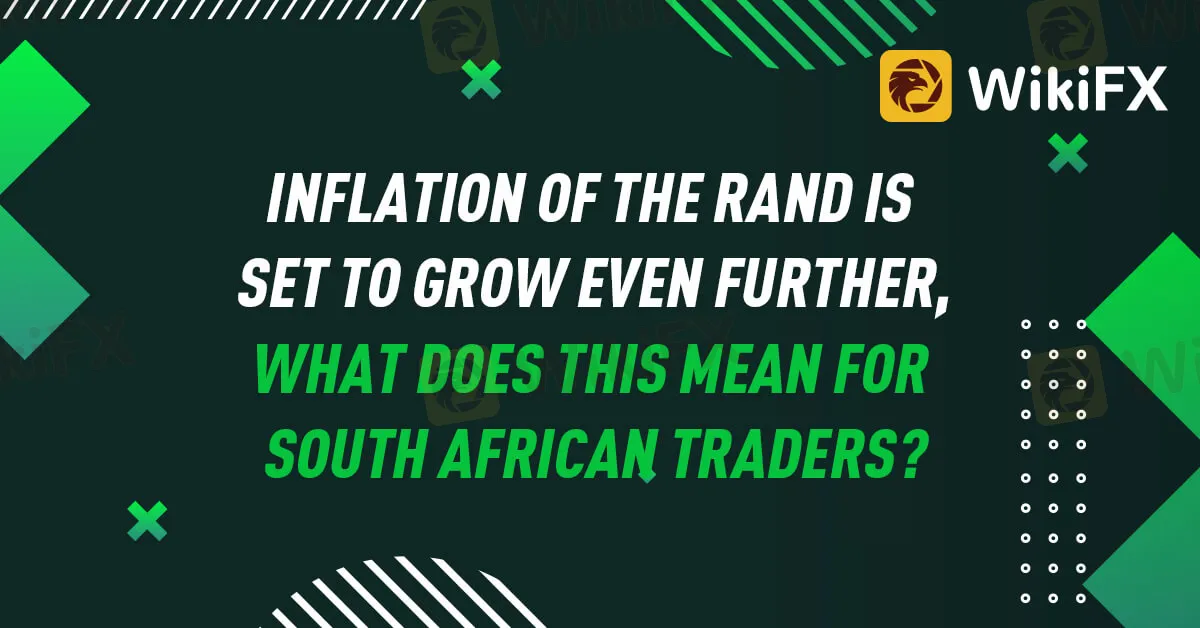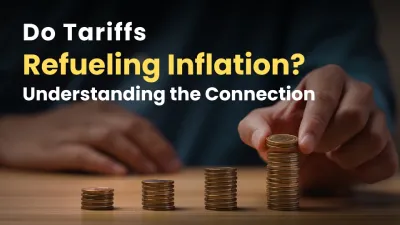简体中文
繁體中文
English
Pусский
日本語
ภาษาไทย
Tiếng Việt
Bahasa Indonesia
Español
हिन्दी
Filippiiniläinen
Français
Deutsch
Português
Türkçe
한국어
العربية
Inflation of the Rand is set to grow even further, what does this mean for South African Traders?
Abstract:South Africa, just like most countries, has been subject to rising inflation rates with the onset of the oil supply shock caused by the Russian-Ukraine war and the repercussions of covid 19 policies. Despite inflation levels reaching historical highs this July at 7.8 percent, economists at the Rand Merchant Bank (RMB) predict that inflation rates are still yet to rise till sometime next year. What does this mean for South African traders, and how can they take advantage of this gloomy news

South Africa, just like most countries, has been subject to rising inflation rates with the onset of the oil supply shock caused by the Russian-Ukraine war and the repercussions of covid 19 policies. Despite inflation levels reaching historical highs this July at 7.8 percent, economists at the Rand Merchant Bank (RMB) predict that inflation rates are still yet to rise till sometime next year. What does this mean for South African traders, and how can they take advantage of this gloomy news
If you are looking to trade the ZAR markets you are going to need a reputable broker which is verified and regulated. This is to ensure that your trading account is not subject to fraudulent activity by scamming brokers and that the broker will follow strict rules of conduct. To find such a broker I recommend using WikiFx. This app is connected to all the broker regulatory boards worldwide so they can help you compare the best-rated brokers with the smallest spread. So do not waste hours looking for the right broker for you, download WikiFx today.
Why is South Africa Set to experience higher inflation?
Recently the July inflation rate of 7.8%, the highest it has ever been since the 2008 global economic crisis, indicates a weakening rand throughout the course of the first and second quarters of the year. Inflation has seen the cost of food and supplies run high yet incomes for most households did not change. This has quite an impact on the ordinary South African as on the 25th of August nationwide strikes were held in protests against the current economic conditions.
Despite this, Siobhan Redford an economist of RMB expects inflation rates will remain relatively high, and may even exceed the rate it is at if things remain the same. Although oil prices have dropped from their record highs in June, there is not much incentive for the food and service suppliers to drop prices and stabilize to previous levels, hence why South African inflation rates may still stay the same.
How can traders take advantage of this?
Despite the gloomy prediction traders can take advantage by shorting the ZAR for the remainder of the coming year. The USDZAR just kissed the 17 rands per dollar level hence its recent correction, however, with the current unfavorable economic conditions we can expect the pair to exceed this level and go further beyond it till the end of the year. Those interested in trading this pair should keep a close eye on the upcoming economic news regarding the South African Government's decisions on the matter. If no solutions are found we can assume the market sediment will stay bullish for the rand and we can continue shorting the currency.

Disclaimer:
The views in this article only represent the author's personal views, and do not constitute investment advice on this platform. This platform does not guarantee the accuracy, completeness and timeliness of the information in the article, and will not be liable for any loss caused by the use of or reliance on the information in the article.
Read more

Why Fed Keeps Interest Rates Unchanged, How Does It Affect To Forex Market?
Fed keeps interest rates at 4.25%–4.50%, impacting forex market. Dollar may rise as tariffs loom. Explore why rates unchanged and forex effects.

Do Tariffs Refueling Inflation? Understanding the Connection
Investigate how tariffs impact inflation. Learn how trade barriers influence prices and the broader economic landscape.

Will Trump's Trade Policies Fuel Inflation? BlackRock Warns of Economic Risks
Bitcoin and crypto prices plummet as recession fears and inflation warnings shake markets. Experts warn of prolonged economic challenges ahead.

How Will Central Bank Digital Currencies Could Shape Everything?
Central bank digital currencies (CBDCs) could reshape financial stability, addressing inflation, banking risks, and monetary policy challenges.
WikiFX Broker
Latest News
How Crypto Trading Transforms FX and CFD Brokerage Industry
UK would not hesitate to retaliate against US tariffs - No 10 sources
FCA Warns Against 10 Unlicensed or Clone Firms
CySEC Warns Against 14 Unlicensed Investment Websites
Top Currency Pairs to Watch for Profit This Week - March 31, 2025
Will natural disasters have an impact on the forex market?
Philippines Deports 29 Indonesians Linked to Online Scam Syndicate in Manila
Navigating the Intersection of Forex Markets, AI Technology, and Fintech
Exposed: Deceptive World of Fake Trading Gurus – Don’t Get Fooled!
AI-Powered Strategies to Improve Profits in Forex Trading
Currency Calculator







